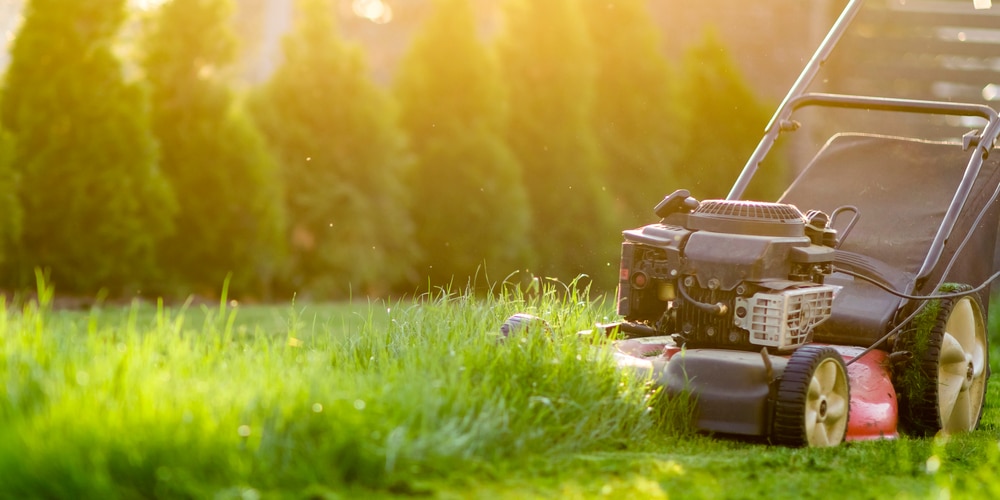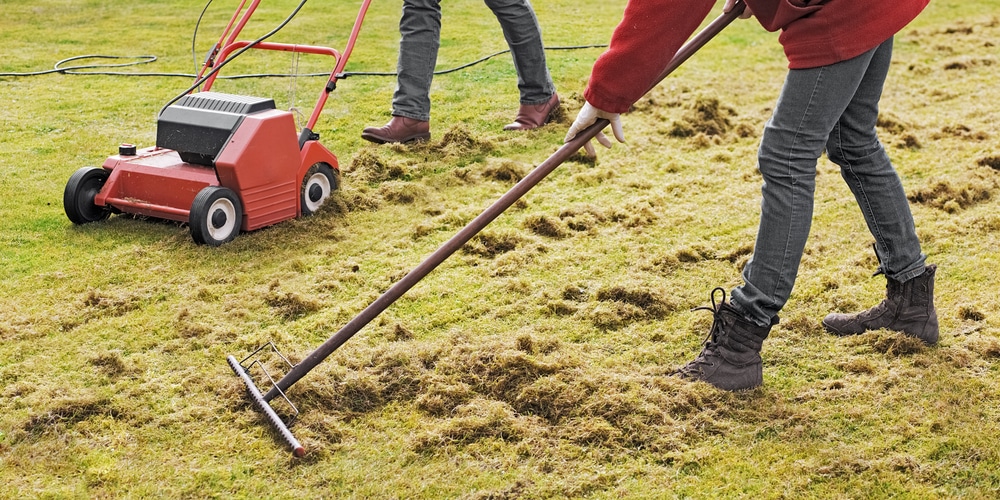If you have a lawn on your property, there’s no need to tell you: maintaining it healthy and lush takes time and effort. Maintainance with turf goes beyond watering and feeding it. It involves paying attention to attacks from pests and diseases, avoiding too much foot traffic, and (of course) regularly mowing your grass!
For some, taking care of their garden is a relaxing hobby that allows them to get away from the stress of the day-to-day routine. And if you are an early bird, you might want to get started with your lawn as soon as possible.
But that might not be the wisest idea. For starters, you might get in trouble with your neighbors: after all, we all know that no one likes to wake up to the noise of a mower).
Plus, you must take into account your grass’ health. Indeed, before getting your equipment and going outside to cut your lawn, you should learn about the best time to cut your grass. But don’t worry: we are here to help you.
So, how early can you mow your lawn? You are in the right place to find out! Here, you’ll discover our tips to get the best out of your turf (without getting in trouble!).
The truth is that unless you have a robotic model, your lawnmower is probably not the quietest machine. And that’s something you must consider: sometimes there is more at stake than achieving the perfect lawn!
Make sure you check your local regulations to avoid getting into problems you’ll be better off avoiding.
How Early Can You Mow Your Lawn?
Yes, this might sound like a trivial question. After all, you should be able to carry out work in your yard whenever you want, right? After all, it is your property. However, cutting your grass too early might cause issues with your turf and neighbors.
Depending on where you live, there might be regulations that don’t allow lawn care professionals to start working before 8 or 9 in the morning. The rules are stricter on weekends and holidays (and for obvious reasons: everyone likes a good rest!).
Don’t forget to check online or call your local officials to avoid having to pay a fine for making too much noise too early in the morning. There is no need to spend more money to pay for something you could avoid by checking your local regulations.
Besides that, mowing in the early morning (between 5 and 8 AM) might also harm your grass. At this time, plants are usually still wet (or at least moist) with dew, making mowing less efficient.
Also, the moisture makes your lawn more susceptible to diseases and fungal infections. And cutting a wet lawn is never a good idea. Under such conditions, your mower might ruin the ground (after all, it is a heavy machine), the cutting might be uneven, and the remains might get moldy and spread diseases across your garden.
Instead, the best time to mow your turf is later in the morning. Do so between 8 and 10 AM for the best results: at this time, you won’t have problems with your neighbors.
Plus, by then, the sun should have dried all the moisture. Additionally, there shouldn’t be excessive heat at this time of the day, which means your lawn will have enough time to “recover” from the mowing before the hot hours of the afternoon kick.
Of course, mowing your lawn too late might also damage it. Avoid cutting your grass between 10 AM and 2 PM as it might cause heat stress to your turf, especially if you live in a hot and dry region. Cutting the grass during the warmest hours of the day will draw moisture from the blades.
But if you don’t have the time to cut your grass in the time frame we suggest, consider waiting until the early evening: between 4 and 6 PM, you’ll get similar results, and you won’t cause any unnecessary stress to your lawn.
At this time of the day, temperatures should cool down, and your blades should be able to heal before the night arrives. Avoid doing it later in the evening as you might risk harming your grass: as your freshly cut blades won’t receive sunlight, you might be exposing your lawn to fungi and other infections.

